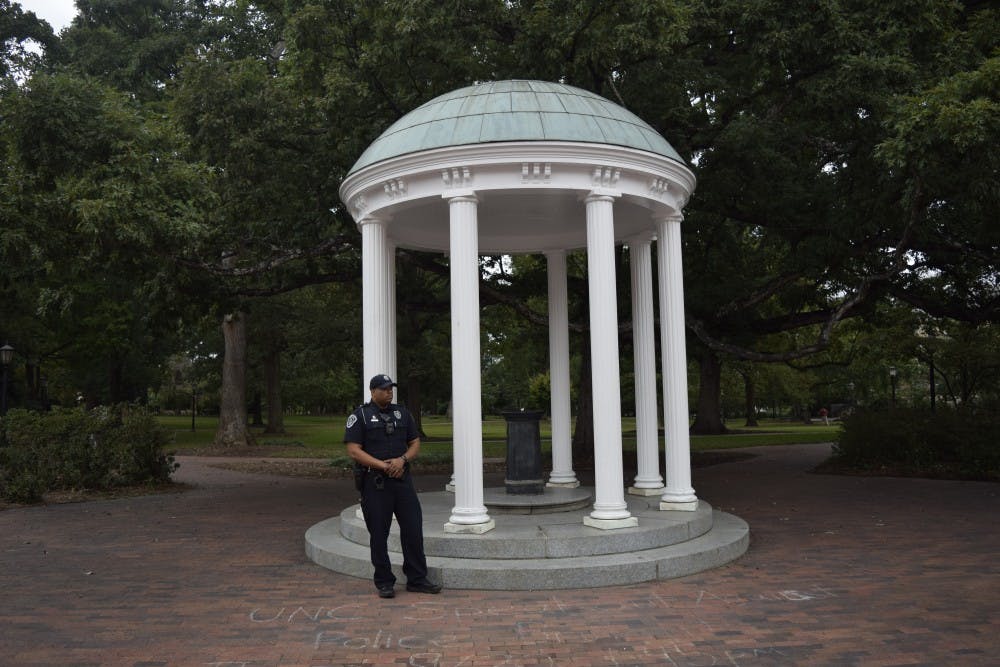Amidst a new age in college game-day drinking laws, tension between students and law enforcement and the need for police to maintain good optics, Thomas Younce — Air Force captain-turned-police officer — is heading UNC’s police force for the time being as interim police chief.
Younce occupies the position until the University chooses a permanent replacement for Jeff McCracken, who resigned in July.
Younce worked a security detail in the Air Force where he guarded heads of state and diplomats, spent time in Haiti with the justice department and then when his wife — a North Carolina native — wanted to come home, they moved to her home state, where Younce spent four years on East Carolina University's police force and 11 with N.C. State University's. He has a total of nearly 44 years of law enforcement experience.
“I bought my first Carolina tie,” Younce said. “I’m really excited to be here.”
Younce is a friend of former Police Chief McCracken, who announced his resignation in April, a few months after an independent report commissioned by the Board of Governors found “serious deficiencies” in how UNC Police and administration handled the Aug. 20, 2018 protest that featured the fall of Silent Sam.
McCracken’s resignation occurred alongside waves of criticism toward UNC Police for tactics used during protests and other events on McCorkle Place — like the use of smoke bombs and pepper spray, and the embedding of undercover officers into demonstrators’ 2017 around-the-clock sit-in at the base of Silent Sam.
Younce said the practice of embedding undercover officers wouldn't be something he alone would pursue, but instead would be coordinated with other agencies. When asked if he would've placed an undercover officer into the McCorkle Place sit-in, Younce said he wasn't there so he doesn't know.
“It’s a useful tool. I don't know that we will embed anybody in, but I’m certain that we will coordinate with the State Bureau of Investigation and other agencies to find out where the threat is or if there's a threat,” he said. “I certainly don’t believe in embedding in political type events. That’s not our business. Now but when that political event moves into the area of crime, then it’s our business.”
Conflict between students and local law enforcement agencies intensified over the past few years. McCorkle Place has become a hot-spot for dual-sided protests, where outside demonstrators from opposing sides have met for high-tension events, requiring a heightened police presence.



